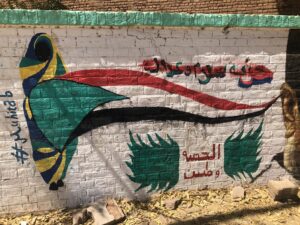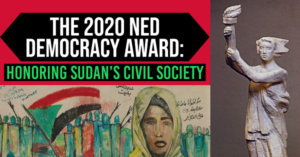Sudan’s Abdalla Hamdok has resigned as prime minister, six weeks after returning to his post following a military coup in October. The move deepens uncertainty around Sudan’s political future and a transition towards elections since the 2019 downfall of long-serving ruler Omar al-Bashir, Reuters reports.
The civilian-military coalition was fraught, in part because the generals worried that their privileges, long jealously guarded, might evaporate, The Times adds. With Mr. Hamdok’s resignation, protests are likely to continue, analysts said, intensifying pressure against the military. That has the potential to push members of the armed groups to abandon their deal with the government, further undermining the legitimacy of General al-Burhan and his allies.
“The option of a civilian-military partnership is getting bleaker by the day,” said Jihad Mashamoun, a Sudanese researcher and analyst.
Hamdok’s resignation “completes the October 25 military coup,” said U.S. Senator Jim Risch (R-Idaho), ranking member of the Senate Foreign Relations Committee. “Hamdok’s ‘return’ to the job in late November, after the military junta allowed it, forestalled the inevitable: the betrayal of the Sudanese people and the death of a fragile civilian and military transition.”
The U.N. Special Representative of the Secretary-General for Sudan, Volker Perthes, regretted on Monday the Prime Minister Abdalla Hamdok’s decision to step down, he told the BBC (above).
 In a statement, he says he respects the decision and commends the significant achievements he made during the first phase of the transitional period. But he is “deeply concerned” by the number of civilians killed and injured in the ongoing protests, and urges the security forces to abide by their obligations under international law and strictly uphold the rights of protestors to freedom of expression and peaceful assembly.
In a statement, he says he respects the decision and commends the significant achievements he made during the first phase of the transitional period. But he is “deeply concerned” by the number of civilians killed and injured in the ongoing protests, and urges the security forces to abide by their obligations under international law and strictly uphold the rights of protestors to freedom of expression and peaceful assembly.
“Perpetrators of violence must be brought to justice”, he said, adding “the aspirations of the Sudanese people for a democratic path and completing the peace process should be the cornerstone of all efforts to solve the current crisis.”
The U.S. State Department tweeted that Sudan’s leaders to “set aside differences, find consensus, and ensure continued civilian rule.” It called for the next premier and Cabinet to be the appointed “in line with the (2019) constitutional declaration to meet the people’s goals of freedom, peace, and justice,” ABC News adds.
 “Its time for the deployment of an international mediator who can do the job Hamdok was incapable of — finding political compromise between the military, the street and the FFC [Forces of Freedom and Change], to rewrite a roadmap for going forward,” said Cameron Hudson, a former U.S. State Department official and Sudan expert at the Atlantic Council’s Africa Center.
“Its time for the deployment of an international mediator who can do the job Hamdok was incapable of — finding political compromise between the military, the street and the FFC [Forces of Freedom and Change], to rewrite a roadmap for going forward,” said Cameron Hudson, a former U.S. State Department official and Sudan expert at the Atlantic Council’s Africa Center.
Sudanese civil society groups, including partners of the National Endowment for Democracy (NED), uniformly condemned the military’s earlier coup and called for the fragile democratic transition process to be restored.
In a recent essay for the NED’s Journal of Democracy, William & Mary’s Sharan Grewal highlighted three key factors to explain why Sudanese protesters—unlike their Algerian counterparts—might be able to convert their 2019 revolution into a democratic transition.







